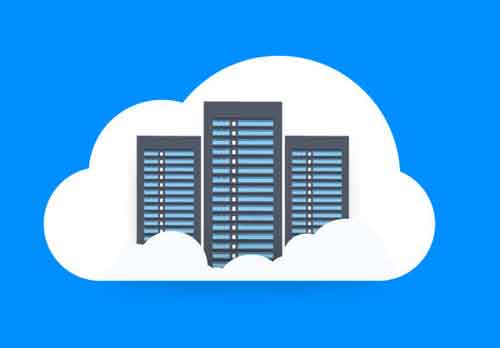What are the benefits of cloud hosting? Among them, it offers greater scalability and disaster recovery capabilities. It also ensures the security of data from malicious activity and accidental loss. In this article, we’ll look at some of the reasons why you should consider using a cloud hosting service. We’ll also discuss how you can cut infrastructure-related costs. Let’s move on to more specific benefits. Ultimately, we’ll cover all of the benefits of cloud hosting.
Cloud Hosting Offers Greater Scalability

A key benefit of cloud hosting is its scalability. As more users access a website, the server’s system resources increase. When the server needs more resources, it simply transfers those resources to another server. With this, cloud hosting is perfect for websites that need a high level of traffic. The architecture of cloud hosting makes it easy for the hosting company to anticipate traffic spikes. Load balancing ensures that the servers aren’t overwhelmed. Cloud servers also offer better security.
Because cloud hosting is scalable, it can meet the changing needs of a business. It allows you to customize your infrastructure for various use cases and testing requirements. Because you can choose the memory, OS, and configuration you need, your cloud infrastructure can be deployed in a matter of seconds. Unlike traditional hosting setups, cloud hosting does not have physical limits. Because you only pay for what you use, you get the infrastructure that’s right for your needs.
It Reduces Infrastructure-Related Costs
The benefits of Cloud hosting go far beyond reduced infrastructure costs. It also streamlines management of applications and reduces labor costs. In addition to reducing infrastructure costs, cloud services allow organizations to leverage infinitely elastic server capacity. In the public sector, the cost of relocating mainframe data centers can be politically unfeasible. Similarly, the costs of maintaining data centers and deploying new servers can become prohibitively expensive.
IT infrastructure costs typically constitute between two and three percent of an organization’s capital expenditure. This includes software, hardware, and staff. Organizations should perform an audit of their IT infrastructure to determine how much they’re spending on it. Direct costs include software, hardware, and maintenance; indirect costs include space and staff. Indirect costs include lost productivity, customer dissatisfaction, and damaged reputation. However, organizations should be aware of the cost benefits of Cloud hosting.
It Provides Disaster Recovery

While traditional hosting provides only a single server, cloud hosting is multi-server, meaning it automatically backs up data. This allows businesses to have a high level of uptime, and the added security of data being spread across several different servers. In the case of a server failure, cloud hosting can provide a disaster recovery option. By enabling you to customize your server, you can also customize the processing power and software applications it provides.
Since cloud servers are shared with other sites, their resources and central processor needs are divided among many. Purchasing a private devoted server to host your website is an expensive option. In contrast, cloud hosting offers complete security of data and information on several levels, including application and actual levels. Various security measures are in place, including capacity isolation, encryption, and firewalls, as well as client personality and executive. A business may even be able to reduce or increase the number of servers in response to a specific disaster.
Protects Data from Accidental Loss and Malicious Activity
Data can be lost or stolen in a number of ways, including through insecure channels such as http rather than https and through specialized cameras. Actors can also steal data from cloud services by downloading existing files or copying data to new files. The risk of data exfiltration is high if sensitive data is transferred to these insecure systems. To prevent data loss and malicious activity, cloud providers should implement encryption policies and enforce a variety of security best practices.
Conclusion
While data loss prevention solutions can help protect sensitive data from theft, a cloud hosting provider cannot guarantee the security of the data. There is always a risk that malicious actors may use cloud resources to host malware. Malicious activity could be in the form of DDoS attacks, spamming campaigns, email spamming campaigns, “mining” for digital currency, large-scale automated click fraud, and malicious content hosting. Malicious activities can compromise a cloud service’s management plane and consume substantial resources.

